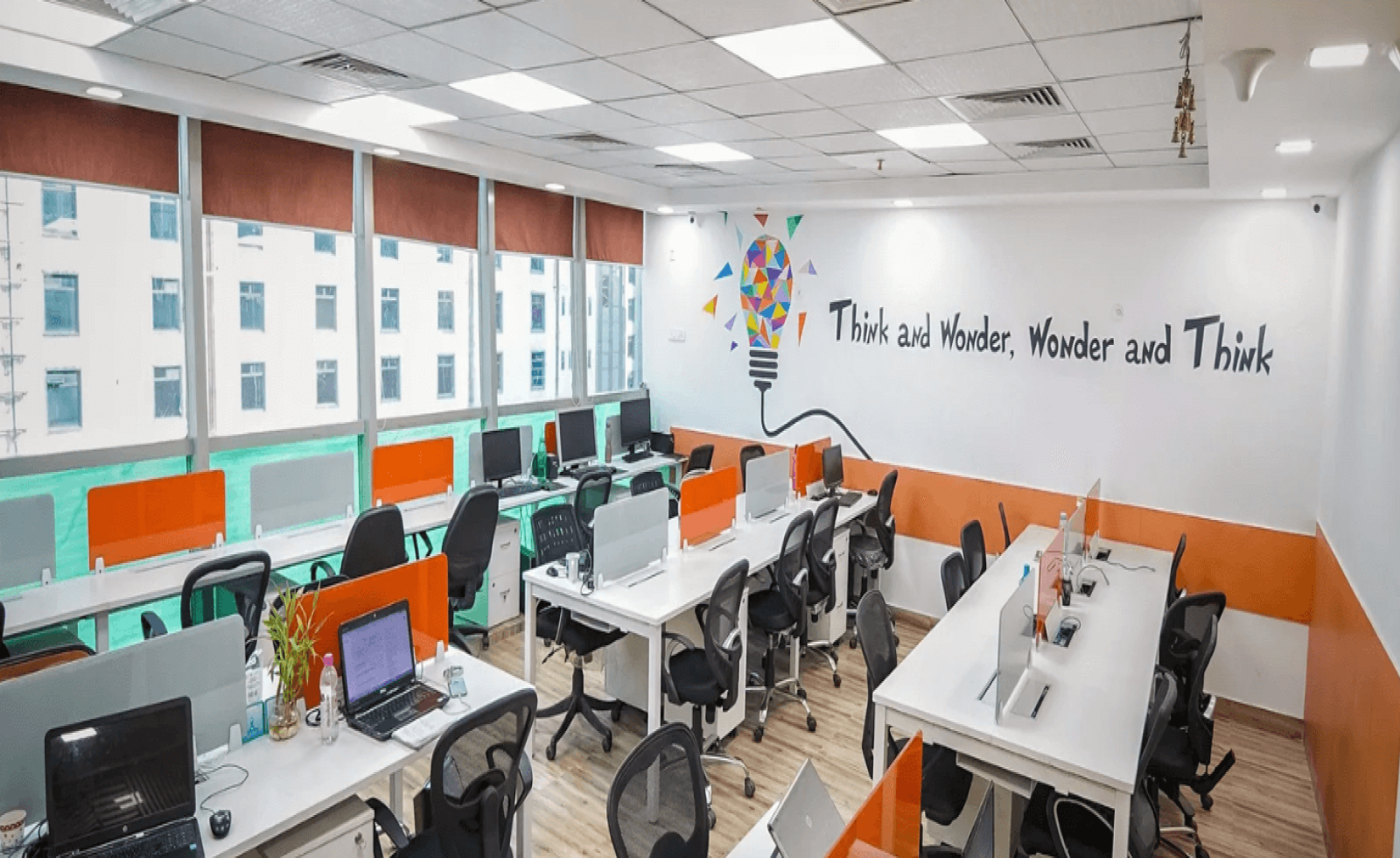A Complete Guide to Renting Office Space in 2025

The way businesses operate has changed dramatically in recent years. Hybrid work, flexible leases, and tech-enabled spaces are now the norm rather than the exception. For startups, freelancers, and even established companies, renting office space in 2025 isn’t just about finding a physical address—it’s about creating the right environment for productivity, collaboration, and brand image.
With so many options available—coworking hubs, serviced offices, managed spaces, and traditional leases—it can be difficult to know where to begin. This guide breaks down everything business owners need to know before renting office space in 2025. It also highlights smart ways to find, compare, and secure offices through trusted online platforms like Officekhoj, a leading online office-on-rent portal for businesses.
1. Understanding Today’s Office Space Options
Not all offices are created equal. The modern market offers a range of flexible solutions designed to suit different business models and budgets. Here’s an overview of the main types available in 2025:
a. Traditional Office Leases
These are long-term rental agreements, often between 3 to 9 years, where businesses rent a fixed office space directly from a landlord. Traditional leases usually require security deposits and fit-out investments but offer full control over layout and branding. They’re best suited for established companies looking for stability and customization.
b. Coworking Spaces
Coworking has grown far beyond a freelancer trend. Today’s coworking hubs are professional, tech-equipped environments where companies of all sizes can rent desks or private cabins with shared amenities. They’re ideal for startups, small teams, or hybrid work models where flexibility is key.
c. Serviced Offices
Serviced offices provide ready-to-use spaces with furniture, internet, utilities, and reception services included in the rent. This “plug-and-play” model helps companies move in quickly without worrying about setup. Costs are typically higher per square foot, but convenience and scalability balance it out.
d. Managed and Hybrid Spaces
Managed offices offer the best of both worlds—custom-designed spaces managed by third-party operators. Hybrid spaces, meanwhile, combine private offices with shared meeting zones or event areas, giving teams flexibility while maintaining a professional setup.
Tip: Platforms like Officekhoj allow businesses to compare all these options in one place, making it easy to find spaces that match specific size, location, and budget needs.
2. Factors to Consider Before Renting Office Space
Renting office space is a big decision with financial and operational implications. To avoid costly mistakes, businesses should consider these critical factors:
a. Location and Accessibility
Location remains the top priority. Choose an area that’s easy for employees and clients to reach. Proximity to metro stations, restaurants, and essential services adds daily convenience. For example, a startup in Bangalore’s HSR Layout might prioritize tech community access, while a legal firm in London’s Holborn might value proximity to courts.
b. Budget and Hidden Costs
Beyond monthly rent, there are often hidden expenses—maintenance, parking, security deposits, electricity, or common area fees. Before signing any agreement, calculate the total monthly outflow. Comparing options on Officekhoj can help identify spaces that fit your overall cost structure.
c. Space and Layout
Consider how much space is actually needed. A good rule of thumb is around 70–100 square feet per employee, depending on the layout. Also, evaluate meeting rooms, breakout zones, pantry areas, and collaborative spaces to ensure they align with work culture and team size.
d. Lease Flexibility
In 2025, businesses value agility. Opt for agreements that allow scaling up or down without penalties. Many managed offices and coworking spaces offer flexible terms, making it easier to adapt as the business grows or restructures.
e. Amenities and Infrastructure
Check for essentials such as high-speed internet, reliable power backup, ergonomic furniture, and secure access systems. For tech-driven companies, having advanced conference facilities and 24/7 accessibility can make a major difference.
3. The Process of Renting Office Space
Once the requirements are clear, the next step is navigating the actual rental process. Here’s a structured approach businesses can follow:
Step 1: Define Requirements Clearly
Start with an internal needs assessment. Define the number of employees, space size, preferred locations, lease duration, and must-have amenities.
Step 2: Research and Shortlist
Use trusted online platforms like Officekhoj to browse and compare listings based on your criteria. You can filter by area, rent, type of space, and even available facilities.
Step 3: Schedule Visits
Always visit shortlisted spaces before deciding. Physical inspections reveal practical aspects that photos can’t show—like lighting, noise levels, cleanliness, and accessibility.
Step 4: Negotiate Terms
Negotiate not only the rent but also terms like maintenance fees, lock-in periods, and exit clauses. Many landlords are more flexible post-2020, especially with hybrid work models affecting demand.
Step 5: Review the Lease Agreement Carefully
Always read the fine print. Ensure the contract includes clear clauses on rent escalation, renewal, repair responsibilities, and refund policies for deposits. It’s wise to get a legal review before signing.
Step 6: Move In and Set Up
Once the lease is finalized, plan the move strategically. Coordinate utilities, internet setup, and furniture arrangements in advance to minimize downtime.
4. How Technology Simplifies Office Renting in 2025
Technology has transformed the way companies find and rent offices. Instead of long property hunts and negotiations, businesses now have access to digital tools that streamline every step.
a. Online Office Portals
Websites like Officekhoj have become central to the office rental experience. They offer verified listings, 360° virtual tours, transparent pricing, and detailed filters that help businesses find ideal workspaces faster.
b. Virtual Tours and 3D Visualization
Before scheduling site visits, decision-makers can take virtual tours, allowing them to shortlist spaces without leaving their desks. This saves time and enables comparison between multiple properties instantly.
c. Data-Driven Insights
Modern platforms use analytics to suggest suitable properties based on preferences, location trends, and price fluctuations. These insights help businesses make informed decisions.
d. Digital Contracts and Payments
Digital lease signing and secure online payment gateways have simplified documentation. This is particularly useful for companies expanding into new cities or working with remote administrative teams.
5. Key Office Rental Trends Shaping 2025
The office rental market continues to evolve. Here are some major trends shaping how businesses rent office space this year:
a. Hybrid Work-Ready Designs
Offices are now built for flexibility. Expect layouts with hot desks, collaboration zones, and quiet pods rather than rigid cubicles.
b. Focus on Sustainability
Green-certified buildings, energy-efficient lighting, and waste management systems are becoming must-haves. Eco-conscious offices not only reduce costs but also appeal to younger workforces.
c. Shorter Lease Durations
Businesses prefer shorter commitments due to market uncertainty. Many office providers now offer leases as short as three months.
d. Increased Demand for Suburban Offices
With remote work spreading, many teams are shifting from city centers to suburban spaces for lower rents and shorter commutes.
e. Technology-Integrated Spaces
From smart lighting and automated entry to meeting room scheduling apps, offices are becoming more digital. These upgrades improve efficiency and safety.
6. Common Mistakes to Avoid When Renting Office Space
Even experienced professionals can make errors during the office search process. Here are common pitfalls to watch out for:
a. Overestimating Space Needs
Renting too large a space increases costs unnecessarily. It’s smarter to start small and expand when needed, especially if lease flexibility is available.
b. Ignoring Accessibility
An impressive office loses value if it’s hard to reach. Always consider commuting times, parking availability, and nearby public transport.
c. Overlooking Lease Clauses
Many businesses sign quickly without understanding legal obligations. Terms about subleasing, maintenance, or early exit penalties can create future challenges.
d. Forgetting About Brand Image
The location and interior of an office reflect a company’s brand. Clients often judge credibility based on office environment and address prestige.
e. Not Using Professional Platforms
Relying solely on brokers or informal listings can lead to unverified properties or higher commissions. Platforms like Officekhoj provide a transparent and reliable alternative.
7. Tips for Getting the Best Office Rental Deal
Renting smart means negotiating effectively and planning ahead. Here are a few practical strategies:
- Start Early: Begin searching at least 2–3 months before your current lease ends. It gives you more time to compare and negotiate.
- Leverage Market Research: Use data from online portals to understand average rent rates in your preferred area.
- Bundle Services: Some landlords offer discounts if you commit to longer terms or include maintenance in rent.
- Check Timing: Off-peak seasons or end-of-quarter periods often bring better deals.
- Ask for Trial Terms: Some coworking and serviced offices offer short-term trials. Testing the environment before signing can prevent regrets later.
Conclusion: Make Smarter Office Space Decisions in 2025
Renting office space in 2025 is no longer just a transaction—it’s a strategic move that affects company culture, efficiency, and financial planning. Whether you’re a startup seeking your first office or an established brand expanding to new cities, having the right tools and insights is essential.
Platforms like Officekhoj make this process simpler by bringing verified listings, transparent pricing, and flexible rental options together in one place. With careful research and a clear understanding of what your business needs, finding the perfect office on rent can be smooth, cost-effective, and rewarding.
Ready to find your next office?
Explore Officekhoj today and connect with the best office spaces available for rent in your preferred city.

Please Login to Comments
Login